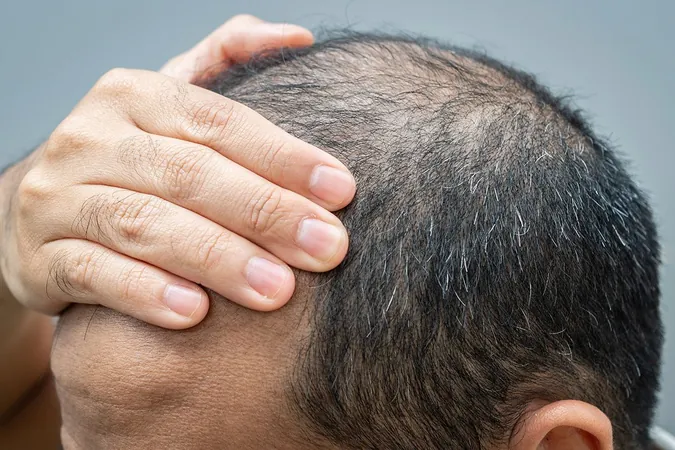
Shocking New Study: Intermittent Fasting May Lead to Hair Loss!
2024-12-13
Author: Daniel
Introduction
Intermittent fasting has gained popularity as a weight loss method, promising numerous health benefits. However, a groundbreaking study suggests that this trendy diet might come with an unexpected downside: reduced hair growth.
The Study Conducted
Researchers from Westlake University in Zhejiang, China, conducted an experiment using mice to explore how intermittent fasting affects hair regeneration. While the fasting mice exhibited improved metabolic health, the study revealed a concerning correlation between restricted eating hours and slower hair regrowth.
Impact on Humans
But could this phenomenon affect humans as well? According to the researchers, it's possible but likely to be less severe due to differences in metabolic rates and hair growth patterns between species. "We want to ensure that people don't shy away from intermittent fasting entirely since it brings many benefits," cautioned Dr. Bing Zhang, senior author and stem cell biologist at Westlake University. "However, it's crucial to be aware of potential unintended effects, such as hair thinning."
Previous Studies
Previous studies have linked fasting to various health improvements, such as enhanced blood circulation, muscle tissue benefits, and metabolic enhancements, yet the impact on hair health remains largely unexplored.
Study Methodology
In their study, Zhang's team examined hair regrowth in shaved mice subjected to different dietary patterns: one group adhered to a regular diet, while the other was fed for only eight hours each day, followed by sixteen hours of fasting. The results were striking: after 30 days, the mice on a normal diet had their hair regrow fully, whereas the intermittent fasting mice showed only partial regrowth, even after 96 days!
Mechanism of Impact
Why does intermittent fasting hinder hair growth? The researchers found that it places stress on hair follicle stem cells, which struggle to adapt when switching from glucose to fat as an energy source. Normally, hair follicles transition between active and dormant states, with hair growth occurring during the active phase. In the control group, follicles reactivated around day 20 and remained so. However, in the fasting group, prolonged fasting led to a decline in follicle vitality.
Clinical Trials in Humans
The team extended their investigation into humans, conducting a small clinical trial involving 49 healthy young adults. Astonishingly, individuals on a time-restricted diet that required 18 hours of fasting experienced an average hair growth reduction of 18%. However, it's important to note that this study had a small sample size and a limited duration, suggesting that larger studies may yield different findings.
Diverse Effects
"The human population is diverse," emphasizes Dr. Zhang. "Effects can vary significantly from person to person. Moreover, mice possess a much higher metabolic rate than humans, which means that the consequences of fasting may be more pronounced for them."
Future Research
Looking ahead, the research team intends to partner with hospitals to further investigate the effects of fasting on various types of stem cells, including those in the skin. A crucial part of their future studies will involve examining potential links between fasting and wound healing rates.
Conclusion
Could intermittent fasting be jeopardizing your luscious locks? As the research unfolds, stay tuned for more updates that could change your diet and hair care routine forever!



 Brasil (PT)
Brasil (PT)
 Canada (EN)
Canada (EN)
 Chile (ES)
Chile (ES)
 España (ES)
España (ES)
 France (FR)
France (FR)
 Hong Kong (EN)
Hong Kong (EN)
 Italia (IT)
Italia (IT)
 日本 (JA)
日本 (JA)
 Magyarország (HU)
Magyarország (HU)
 Norge (NO)
Norge (NO)
 Polska (PL)
Polska (PL)
 Schweiz (DE)
Schweiz (DE)
 Singapore (EN)
Singapore (EN)
 Sverige (SV)
Sverige (SV)
 Suomi (FI)
Suomi (FI)
 Türkiye (TR)
Türkiye (TR)